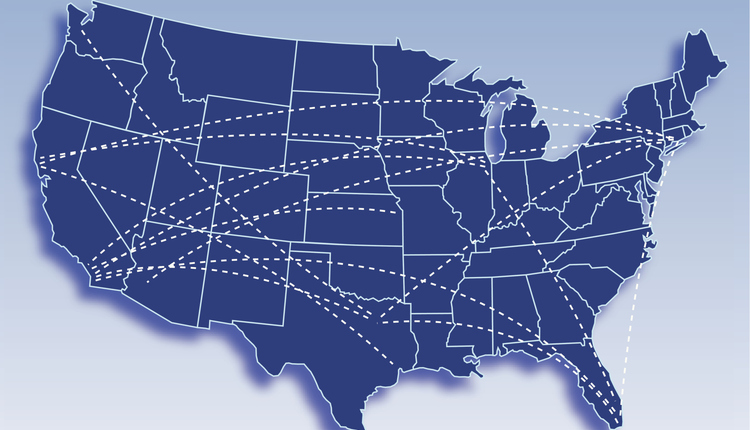WASHINGTON - The U.S. Postal Service today updated the list of retail stations and branches that remain under review for possible consolidation, with only 241 offices still under review.
Unlike most federal agencies, America's national mail system receives no tax subsidy for operating expenses and relies on the sale of postage, products and services to fund its operations. The Postal Service reported a loss of $3.8 billion at the end of its 2009 fiscal year in October.
"To shore up its finances, the Postal Service is looking at every aspect of its business to economize. Reducing over-capacity in retail and delivery operations is a smart business move. Every effort is being made to maintain and improve customer access to postal services," said Steven J. Forte, senior vice president, Operations.
Today's announcement updates a review process begun earlier this summer that initially examined about 3,300 stations and branches in urban and suburban areas across the country, focusing on facilities in relatively close proximity to one another. The process is to determine where consolidations might be feasible without compromising customer access to postal services.
With over 36,000 Post Offices, stations, branches, contract and community post offices, the Postal Service has the largest retail network in the United States. An additional 56,000 locations such as supermarkets, drug stores, and other retailers sell postage and selected postal services. Nearly 18,000 ATMs dispense sheets of stamps. But customers do not have to visit a physical building to purchase products and services; postage can be bought at usps.com and printed on personal computers.
As part of this process, the Postal Service has filed periodic updates with the Postal Regulatory Commission, identifying the retail stations and branches that remain under consideration. The filing does not represent a final decision on consolidation. To date, no facility-specific final decisions have been made as a result of this initiative.
New initiatives also are being undertaken to build revenue, including Flat Rate Priority Mail pricing. If it fits in the box, it ships for one low price regardless of U.S. destination or weight. Another recent revenue building initiative introduced greeting cards to 500 select Post Offices.
Unlike most federal agencies, America's national mail system receives no tax subsidy for operating expenses and relies on the sale of postage, products and services to fund its operations. The Postal Service reported a loss of $3.8 billion at the end of its 2009 fiscal year in October.
"To shore up its finances, the Postal Service is looking at every aspect of its business to economize. Reducing over-capacity in retail and delivery operations is a smart business move. Every effort is being made to maintain and improve customer access to postal services," said Steven J. Forte, senior vice president, Operations.
Today's announcement updates a review process begun earlier this summer that initially examined about 3,300 stations and branches in urban and suburban areas across the country, focusing on facilities in relatively close proximity to one another. The process is to determine where consolidations might be feasible without compromising customer access to postal services.
With over 36,000 Post Offices, stations, branches, contract and community post offices, the Postal Service has the largest retail network in the United States. An additional 56,000 locations such as supermarkets, drug stores, and other retailers sell postage and selected postal services. Nearly 18,000 ATMs dispense sheets of stamps. But customers do not have to visit a physical building to purchase products and services; postage can be bought at usps.com and printed on personal computers.
As part of this process, the Postal Service has filed periodic updates with the Postal Regulatory Commission, identifying the retail stations and branches that remain under consideration. The filing does not represent a final decision on consolidation. To date, no facility-specific final decisions have been made as a result of this initiative.
New initiatives also are being undertaken to build revenue, including Flat Rate Priority Mail pricing. If it fits in the box, it ships for one low price regardless of U.S. destination or weight. Another recent revenue building initiative introduced greeting cards to 500 select Post Offices.


